- Home
- Training Opportunities
- American Heart Association Summer Undergraduate Training
Undergraduate Fellowship Program at CVI
The American Heart Association Summer Undergraduate Fellowship Program at Penn Cardiovascular Institute allows undergraduates, including those from smaller institutions without extensive research programs, to gain exposure to state-of-the-art cardiovascular research. Prior research experience is not required. The types of research at CVI include, but are not limited to: cardiovascular molecular and cellular biology; physiology; vascular biology; genetics; metabolism; clinical research; and implementation science. This immersive 10-week program offers students hands-on experience in laboratories with faculty mentors who are members of CVI. In addition, undergraduate interns will have the opportunity to participate in seminar series, networking, and an end-of-summer symposium. This internship is ideal for students who are interested in pursuing advanced biomedical degrees to have a research-focused experience in cardiovascular science.
Summer Program Dates
Th fellowship program will run from Monday, June 1, 2026 through Friday, August 7, 2026. Participants must commit to the program for its duration. Participants can expect to engage in lab and program activities for approximately 40 hours per week.
Eligibility
- Student applicants must be enrolled at a 4-year college or university. Students must be classified at sophomore, junior, or senior academic status at the time of award activation (June 2026) or may complete the fellowship immediately following graduation.
- Students must be able to attend the full, 10-week program.
- At the time of application, the student must be a United States citizen, or foreign national holding a student, exchange, or permanent resident visa, including an F-1, H1, H1B, J1, PR, or TN. Deferred Action for Childhood Arrivals (DACA) status requires additional AHA approval to apply.
- Students of all backgrounds are encouraged to apply, including those from diverse backgrounds, such as those with socio-economically disadvantaged backgrounds, students who have experienced obstacles to their career due to membership in a racial or ethnic group, LGBTQ students, first generation college students, and students with disabilities.
SURE Program
We also offer placement via the American Heart Association's SURE (Summer Undergraduate Research Experience) Program. The SURE program is designed to help students overcome particular personal challenges that are obstacles to completing their professional education in a relevant field of study or career. The application and summer research experience are identical to the Undergraduate Fellowship, but there are eligibility requirements as outlined below. If you qualify and would like to be considered, you will be able to indicate this on your application.
- Individuals who have faced challenges or obstacles to their career.
- Individuals with disabilities, who are defined as those with a physical or mental impairment that substantially limits one or more major life activities.
- Individuals from disadvantaged backgrounds, defined as those who meet two or more of the following criteria: were or currently homeless; were or currently in the foster care system; were eligible for the federal free and reduced lunch program for two or more years; have/had no parents or legal guardians who completed a bachelor's degree; were or currently are eligible for Federal Pell grants.
At minimum, SURE recipients:
- Must be interested in a health care-related field.
- Must be full-time undergraduate, rolling into their sophomore, junior, or senior year.
- Must be able to attend the full, 10-week program and participate in online SURE symposium.
- At the time of application, the student must be a United States citizen, or foreign national holding a student, exchange, or permanent resident visa, including an F-1, H1, H1B, J1, PR, or TN. Deferred Action for Childhood Arrivals (DACA) status requires additional AHA approval to apply.
Compensation
Students will receive a $6,000 stipend. Undergraduate Fellows will also receive funds to attend a scientific meeting. The cost of housing will be partially offset or fully covered depending on funding sources. We cannot guarantee full housing coverage in addition to the stipend at this time.
Admissions
Applications for Summer 2026 are currently closed. The application period closed January 26, 2026 at 5pm EST. Applications will not be accepted after January 26, 2026, 5pm EST. If you have any questions regarding the application, please contact Emily Romick, Program Coordinator.
Please review application requirements carefully.
Policy on Use of AI Tools in Proposal Preparation:
Applicants are permitted to use AI-based tools (e.g., ChatGPT, Grammarly) for minor editorial assistance, such as grammar correction, formatting, and improving clarity of expression. The intellectual content, scientific ideas, and original writing must be the applicant’s own work.
Applicants must briefly disclose any AI tools used and their purpose in their application. UPenn reserves the right to use AI detection software or related methods to assess applications for compliance with these guidelines. Evidence of substantial AI-generated content without appropriate applicant oversight may negatively impact the review of the application.
Application Components
You will need to submit as part of your application:
1. Resume/ curriculum vitae
2. Transcript from your 4-year college (unofficial is acceptable)
3. Responses to three short answer questions. Please reply to these prompts thoughtfully. We recommend writing your responses in a separate document and copying and pasting your responses, as you cannot save an in process application.
4. Two confidential letters of recommendation are required. LORs should be from those who can speak to your academic experience, and will need to be uploaded by your recommender.
Your two letters of recommendation must be submitted by your recommenders.
Overview of Fellowship
Mentors
Mentors are drawn from over 120 faculty members of Penn CVI. Mentors have primary academic appointments in an array of clinical and basic science departments. Interns will be matched with mentors based on mutual research interests, and the research program and capacity of the mentor. Interns will have regular contact with their mentor in lab meetings and one on one meetings, and receive daily support from a senior lab member. Fellows will work with mentors and lab members to identify a research project they can participate in and be able to present at the end of the 10 weeks.
Seminars and Networking
An end-of-summer student symposium will allow interns an opportunity to present their summer research experience. Interns will also have the opportunity to participate in journal clubs, seminars, and career talks. There will be opportunities to interact with other summer interns from the AHA and other summer biomedical internship programs at Penn.
Campus Life and Philadelphia
Philadelphia is a dynamic and diverse big city made up of neighborhoods with great restaurants, shops, history, and culture. The University of Pennsylvania is a large, urban campus with many summer programs and free events that happen on campus for students during their summer months in the Fellowship Program.
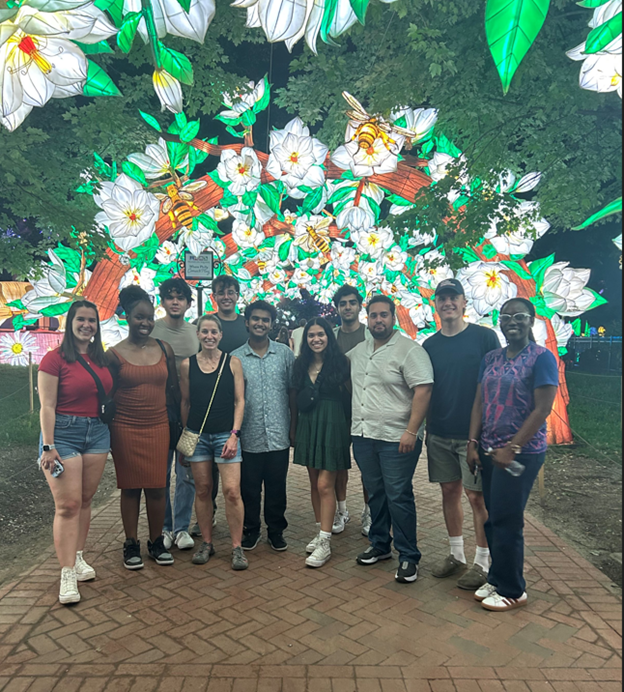
AHA Summer Fellowship Alumni

Mentor: Kenneth Margulies/ Benjamin Lee
|
My name is Elizabeth Dacanay, and I am from Beaver, Pennsylvania. I am a senior biochemistry major with a mathematics minor at Saint Vincent College. I had the privilege of working in Dr. Ken Margulies’ lab under the mentorship of Dr. Benjamin Lee. My project focused on contractility modulation of living myocardial slices (LMS), which are thin, living sections of heart tissue. There are currently few disease modifying therapies that directly enhance cardiomyocyte contraction. LMS capture the complexity of the native structure and function of the heart, and so they have the potential to serve as a way to test contractility modulating compounds. Over the course of the summer, we developed and optimized a platform for the cultivation and biomimetic stimulation of rat LMS preparations and characterized the MT network and contractility of LMS during slice culture. Through this program, I had the opportunity to meet accomplished faculty and graduate students of Penn CVI, learn new laboratory techniques, shadow cardiologists, and expand my knowledge of cardiovascular disease. I enjoyed getting to know all the wonderful members of my cohort and exploring Philadelphia with them. This experience confirmed and deepened my interest in cardiology, and I am incredibly thankful for how it has helped me to grow personally and professionally. |
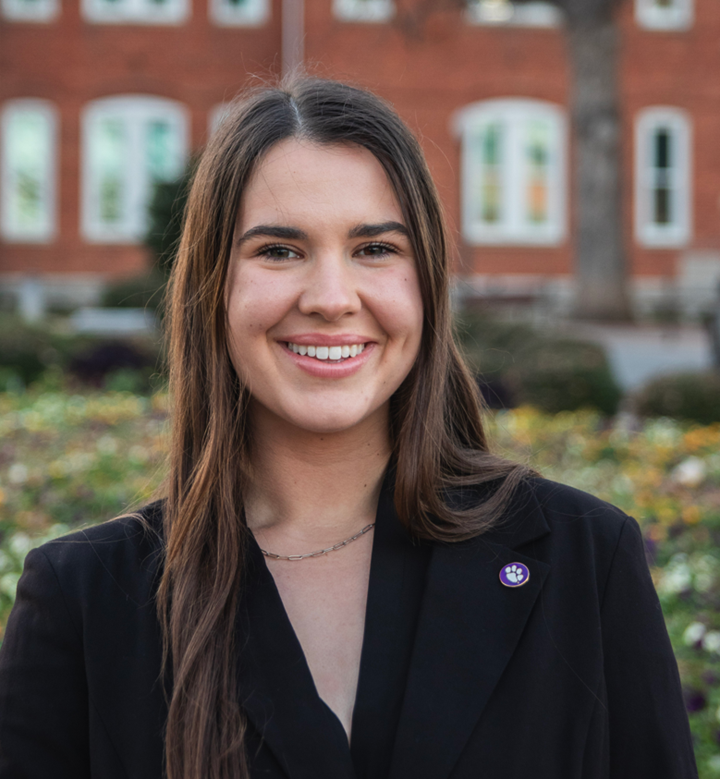
Mentor: Alison Pouch
|
My name is Taylor Gloystein, and I am from Wetumpka, Alabama. I am a rising senior studying bioengineering at Clemson University. I had the incredible opportunity to work with Dr. Alison Pouch over the summer! My project focused on enhancing quantification for bicuspid aortic valve surgical planning and evaluating new methods of measurement using 3D geometric modeling and transesophageal echocardiography. This program served as my introduction to computational research and was an incredible learning experience for me! Everyone at the Penn Cardiovascular Institute was extremely supportive and motivating throughout the summer. The weekly seminars provided the perfect opportunity to learn more about the application process, research ethics, and the various pathways to becoming a physician-scientist. These meetings were incredibly helpful in shaping my current career aspirations. I also greatly enjoyed getting to know everyone in my research cohort, and it was so fun getting to explore the city with a group of equally inspired individuals! I would highly recommend this program, as it is a uniquely enjoyable foundational research opportunity. |

Mentor: Zoltan Arany
|
I am Eniola Omogbai, a junior at Spelman College studying Biology with a minor in Public Health from Lagos, Nigeria. This summer, I had the privilege of working in Dr. Zoltan Arany’s lab. Under the exceptional mentorship of Natalie Brown and Yijun Yang, I studied the placenta-heart crosstalk during pregnancy. This research is significant, as cardiovascular complications account for over 33% of pregnancy-related deaths. Our focus was on understanding cardiac remodeling during healthy pregnancy. We hypothesized that Placental Insulin-Like Growth Factor Binding Protein (IGFBP) proteases, specifically ADAM-12 and PAPP-A-2, secreted into maternal blood during pregnancy, mediate placenta-heart communication. Through my involvement in this project, I learned new laboratory techniques, attended weekly breakfast meetings with outstanding Penn Cardiovascular Institute faculty and graduate students, and explored Philadelphia with my amazing cohort members. Overall, I am deeply grateful for the opportunity to be part of this program and the personal and professional growth I experienced as a researcher. |

Mentor: David Frank
|
I'm Quinn Wright, a rising junior studying biochemistry at Grinnell College. This past summer I had the opportunity to work in the lab of David Frank at CHOP. My project was centered around the molecular underpinnings of lung vasculature development, and specifically how the chemokine, CXCL12, affected downstream molecular pathways like that of polyamine biosynthesis. We were interested in how underdevelopment of the lung vasculature occurs (pulmonary hypoplasia), which can lead to pulmonary hypertension and right heart failure. As part of this research, I learned numerous new lab techniques, and was able to take away a lot of important research skills. The weekly seminars also provided important insight into the careers of physician-scientists and helped to shape my future goals. As a whole, I am very thankful for the chance to participate in the program, the connections, and support that I received, and the work that I was able to be a part of. |
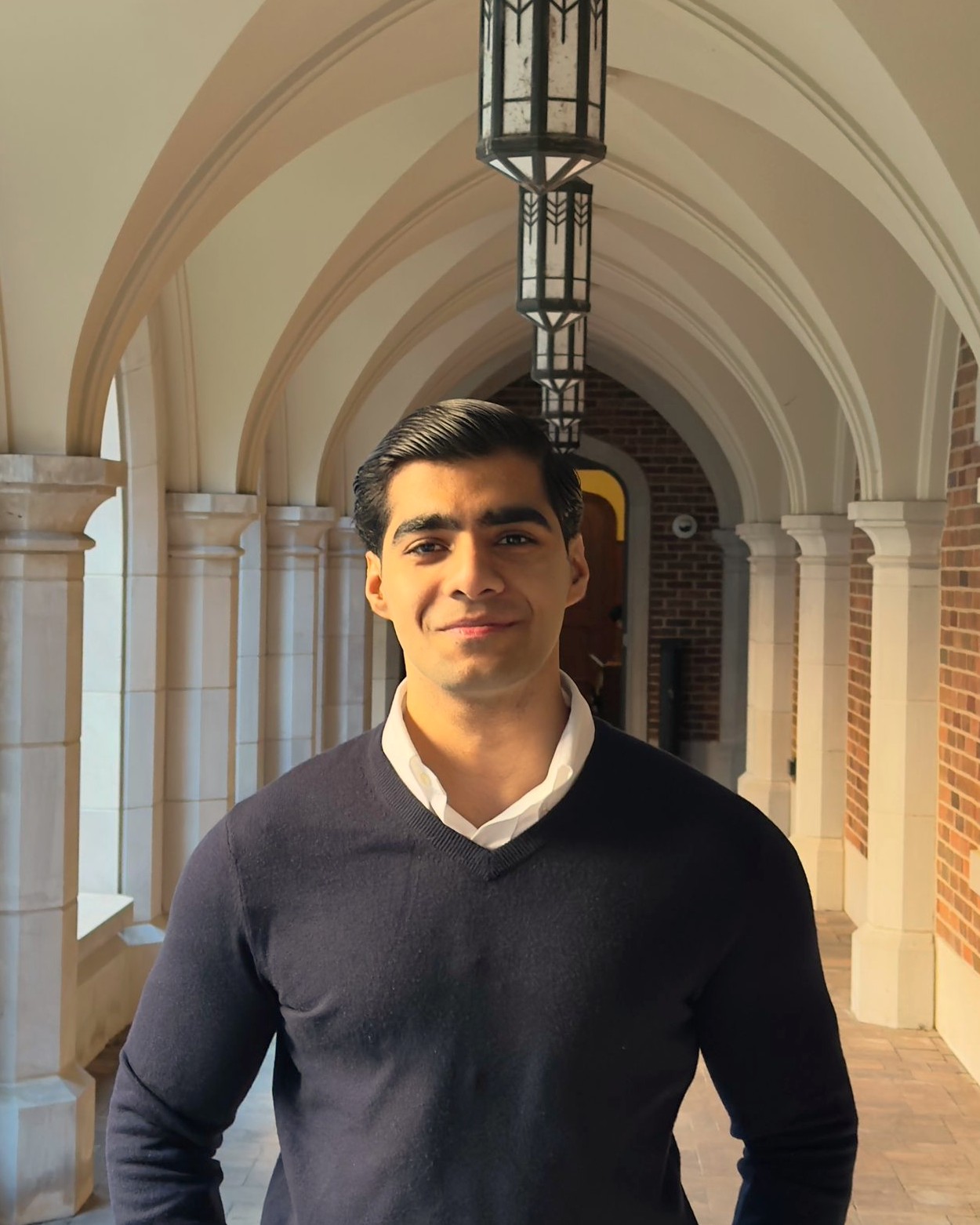
Mentor: Sharlene Day
|
I am an undergraduate at Vanderbilt University majoring in Molecular and Cellular Biology. This past summer, I had the privilege of working in Dr. Sharlene Day’s lab under the mentorship of Chris McAllister. My research focused on investigating the pathogenic mechanisms of missense variants in Myosin Binding Protein-C (MyBP-C) associated with hypertrophic cardiomyopathy (HCM), as well as evaluating the potential of lipid nanoparticles (LNPs) for targeted correction of these variants in iPSC-derived cardiomyocytes. Through this fellowship, I not only learned new experimental techniques and explored an exciting area of translational research, but also solidified my long-term aspirations to pursue a career in biomedical research. The weekly breakfast meetings with physician-scientists were especially impactful, offering valuable insight into their career journeys and the challenges and rewards of bridging science and medicine. Overall, I am deeply grateful for the opportunity and the support I received, as well as the chance to contribute meaningfully. |

Mentor: Scott Damrauer/ Michael Levin
|
I am Ju-Woo Nho, an undergraduate student studying Applied Mathematics-Biology at Brown University. This summer, I had the wonderful opportunity to delve into the world of computational genomics. Under the exceptional mentorship of Dr. Scott M. Damrauer and Dr. Michael G. Levin, I examined the genetic underpinnings of pericarditis through genome-wide association studies (GWAS). My work involved conducting fixed effects inverse-weighted meta-analyses and utilizing nearest gene annotation, credible sets after approximate Bayesian fine mapping, and MAGMA analysis for gene prioritization. The entire lab team provided unwavering support, and the collaborative environment I had the privilege of witnessing made me fall in love with the field. This program was a truly transformative experience, from the weekly CVI speaker breakfasts (I <3 Spread Bagelry) featuring giants in the scientific community to the camaraderie I formed with fellow participants. |

Mentor: Rajan Jain
|
My name is Shivani and I am a rising junior at Cornell University studying computational biology. During the summer, I worked in Dr. Jain's Lab where I worked alongside MD/PhD student Kaitlyn Shen on two projects. The first project was focused on finding an optimal dilution concentration at which we can detect LMNA gene knockdown in cardiomyocytes cells. The second project was focused on measuring how distance of lamina-associated domains of chromatin from nuclear lamina changes upon LMNA gene knockdown. I cannot thank the Jain Lab enough for providing me with a supportive and encouraging environment where I could venture out of the computational world and into molecular biology and wet lab research. It has been an immense privilege to work in an environment focused on bridging the gap between science and medicine. |
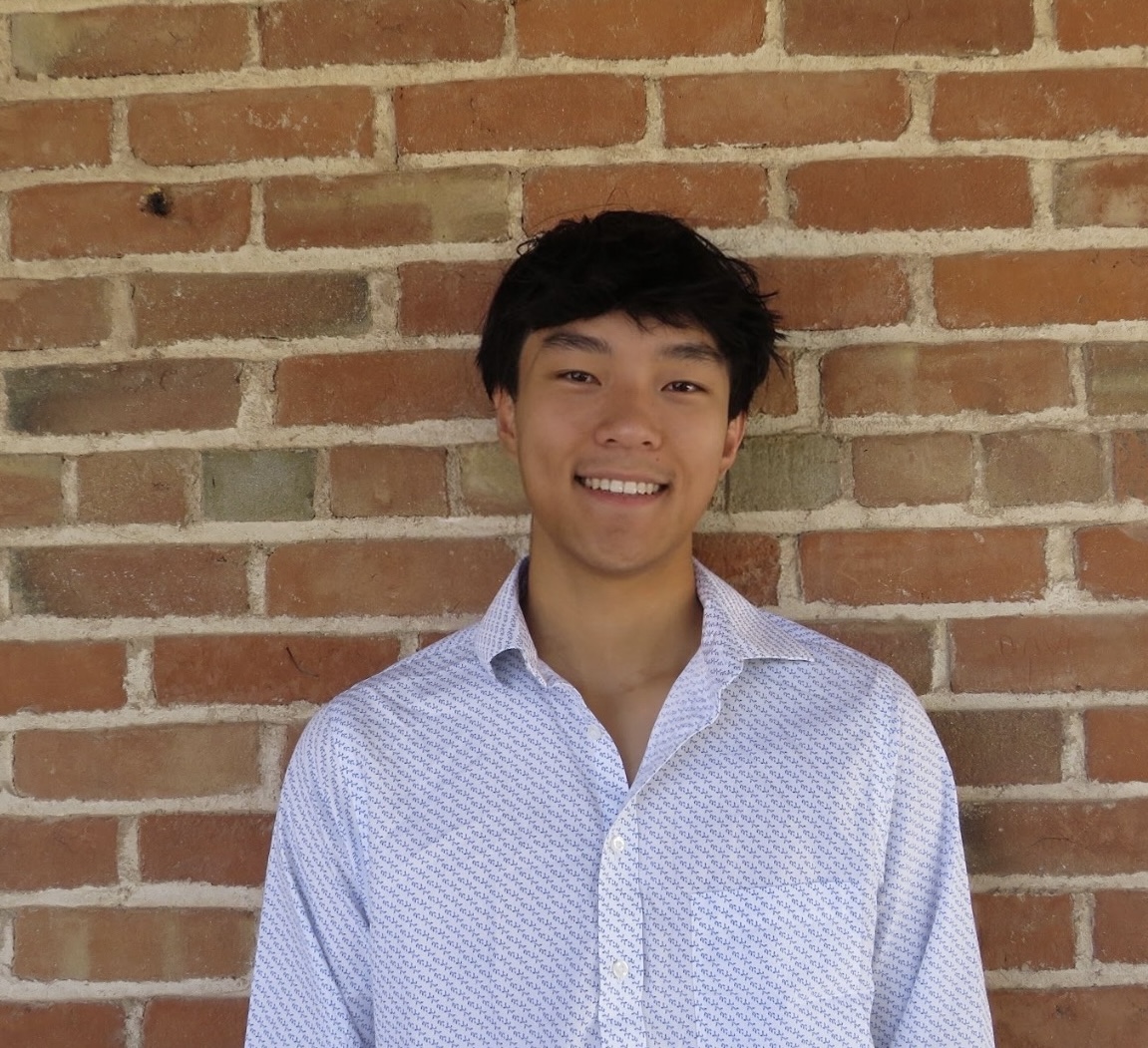
Mentor: Sharlene Day
|
My name is Andrew Kim, and I’m an undergraduate student majoring in physiology at the University of Arizona. This summer I had the opportunity to conduct research in Dr. Sharlene Day’s laboratory as a part of the AHA fellowship at the University of Pennsylvania. I had an incredible experience, furthering my interests with cardiac sarcomere biology and translational research. My research project was to investigate the effects of missense variants in MYBPC3 on protein expression and sarcomeric localization. I developed skills in western blotting, iPSC culture, and immunofluorescence. The Day lab members and the cardiovascular institute faculty were extremely supportive, and I couldn’t have asked for a better environment to hone new skills and foster meaningful relationships. This fellowship reinforced by aspirations to become a physician scientist in the field of cardiovascular academia. |
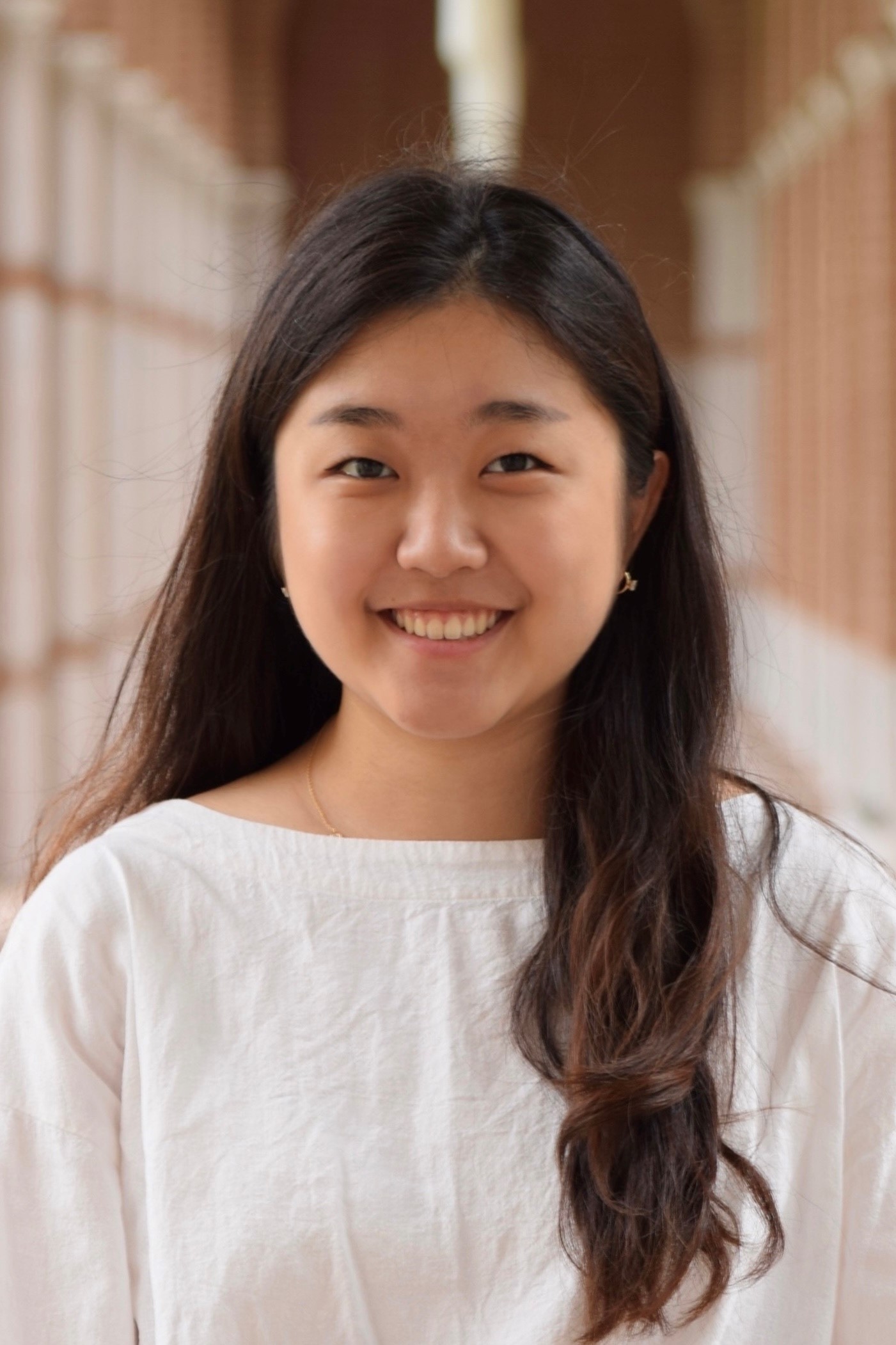
Mentor: Jacob Brenner
|
My name is Sumin Jeong, and I am an undergraduate student studying bioengineering at Rice University in Houston, Texas. This summer, I was part of the AHA Fellowship Program at University of Pennsylvania and had an amazing experience in Dr. Brenner's lab. My research mainly focused on probing various drugs that inhibit different inflammation pathways induced by lipid nanoparticles (LNPs). Not only was the project itself very cutting edge and intriguing, but also the hard-working and supportive mentors I met in the lab were the highlights of this summer that I truly feel very grateful for. This fellowship will definitely serve as a foundation in my research career as I plan to pursue a PhD in biomedical engineering in the future. |

Mentor: Wencao Zhao and Zoltan Arany
|
This summer, I helped out with several projects with my mentor Dr. Wencao Zhao in the Arany Lab, although my main project was to examine the role the Wnt signaling pathway has in endothelial cell behavior in failing human hearts. Angiogenic signaling and the Wnt signaling pathway have been shown to be upregulated in endothelial cells in heart failure, and my project shows that Wnt signaling actually contributes to the increased angiogenesis. This will allow for future studies to use genetic modification to block Wnt signaling in the endothelial cells of heart failure mouse models to control the amount of angiogenesis and determine if upregulated angiogenesis in heart failure is helpful or harmful. Much of my day-to-day work involved cell culturing, EdU staining, fluorescence microscopy, image analysis/quantification, gel electrophoresis, and more. |

Mentor: Zoltan Arany
|
My name is Kaustubh Koya, and I am an undergraduate at Vanderbilt University from Memphis, TN majoring in Molecular & Cellular Biology and Economics. I was fortunate enough to work in the Arany lab with Nicholas Forelli on the effect of SGLT2 inhibitors in heart failure, learning a wide assortment of methods from western blots to Langendorff experiments. The experience helped establish my pursuit of cardiology throughout my career, and I can't thank my mentors enough for all their guidance throughout the program. I had an amazing time being a part of the AHA cohort, meeting innovative leaders in many avenues of the medical field, and experiencing the CVI at UPenn. The reservoir of bagels we had weekly was also a huge bonus. |
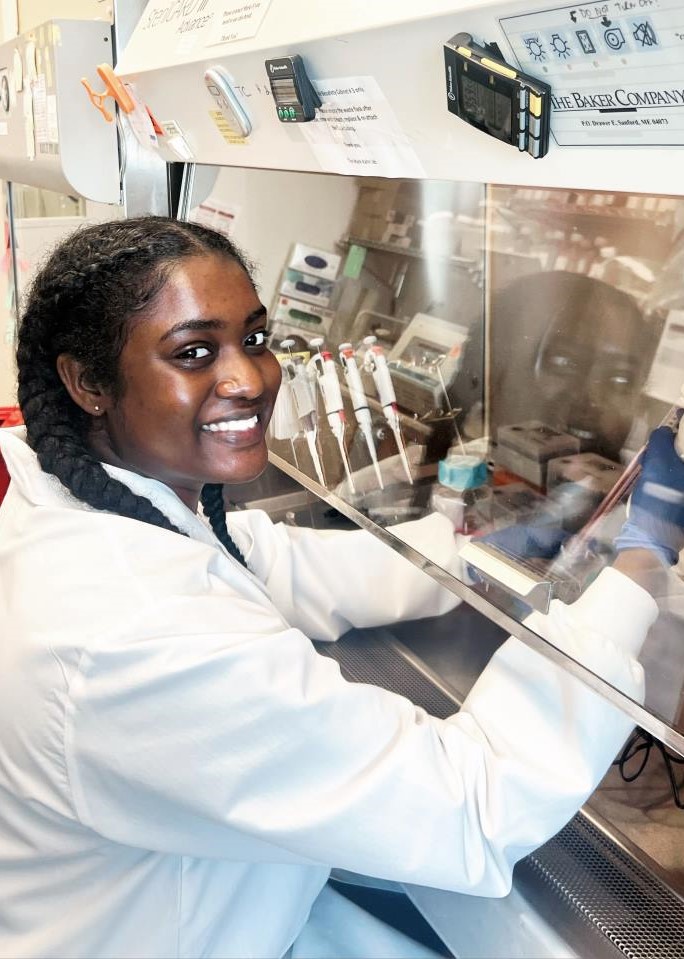
Mentor: Mark Kahn
|
My name is Danielle Jathan and I am from Kingston, Jamaica. I am a junior majoring in Biology at LeMoyne-Owen College in Memphis, Tennessee. This summer has been a memorable and insightful experience. I had the opportunity to be a part of the American Heart Association Summer Research Fellowship at the prestigious University of Pennsylvania Perelman School of Medicine Cardiovascular Institute. During this incredible experience, I had the privilege to delve into the fascinating world of cardiovascular research, with a particular focus on Vascular Biology, at the Mark Kahn Lab. My research project focused on the investigation of the proliferation of murine placental endothelial cells in vivo. This work allowed me to contribute to our understanding of the intricate processes that underlie placental vascular development, a critical aspect of maternal-fetal health. It was an incredible journey filled with learning, collaboration, and the opportunity to work with some of the brightest minds in the field such as my mentor, Mark Kahn, M.D., who provided guidance and immense support throughout the duration of the research project. I am grateful for the mentorship and the chance to contribute to groundbreaking research that has the potential to impact healthcare and improve lives |
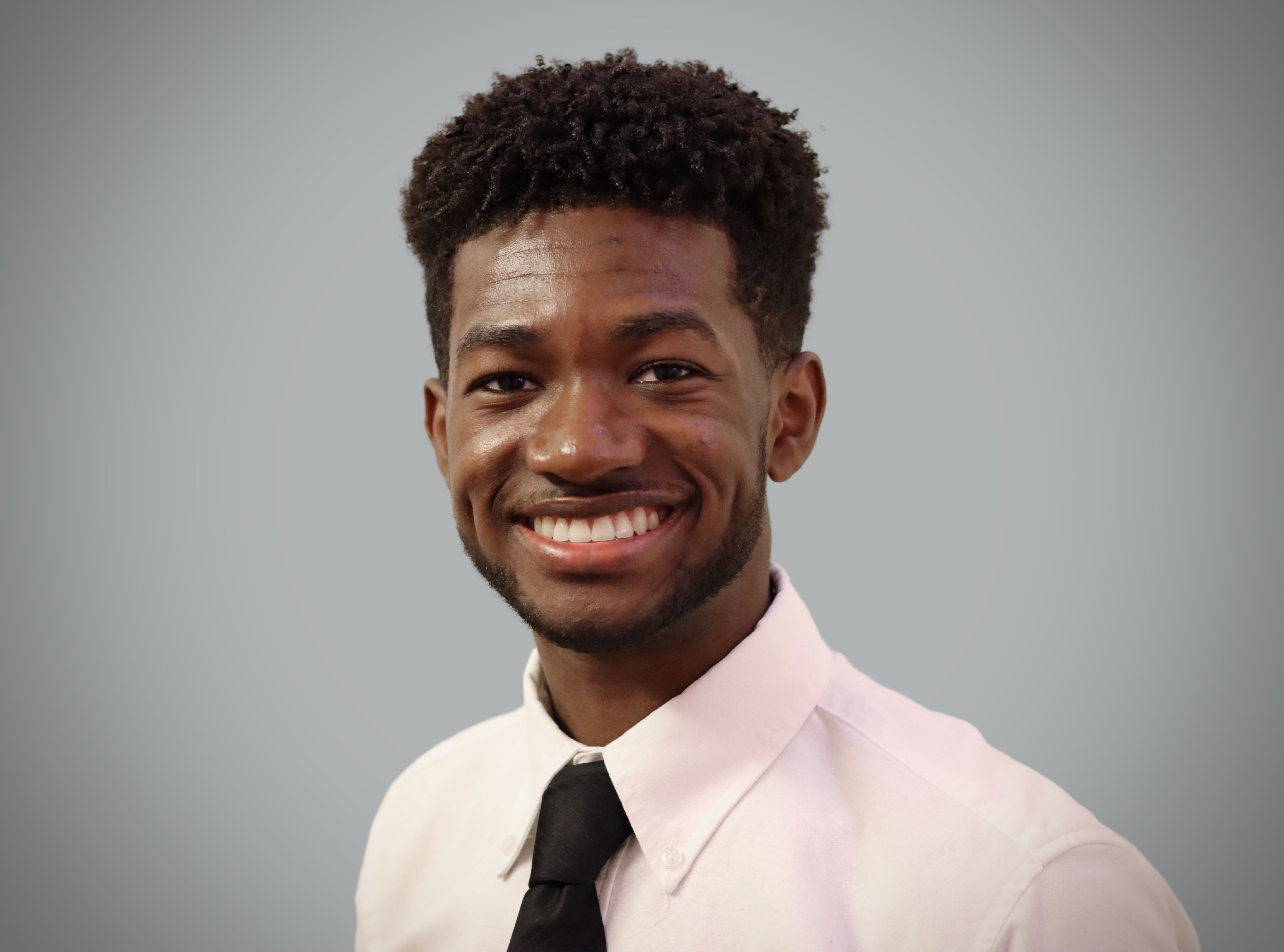
Mentor: Marie Guerraty
|
Currently a student at the University of Maryland, I had the great opportunity to participate in the AHA Fellowship program at the University of Pennsylvania. In this program, I had the pleasure of studying and performing experiments with a focus on Coronary Microvascular Disease in Dr. Marie Guerraty's Lab. I was able to learn more about the cell biology and physiology of the cardiac microvessels and learn about how various proteins, such as Friend-of GATA 2 (FOG2), can be analyzed to eventually treat this condition. In this lab, I was able to carry out our experiments using a multitude of laboratory techniques such as qrt-PCR, Luciferase Assays, Image J quantification analysis, etc. The members of this phenomenal lab were extremely supportive and really pushed me to get out of my professional comfort zone. Between running experiments, practicing presentation techniques, and expanding my scientific understanding, Dr. Guerraty's lab and the AHA fellowship really allowed me to develop professionally and narrow my scientific interests! |
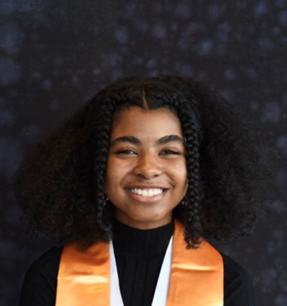
Mentor: Rajan Jain
|
My name is Christina Copeland. I am from Williamstown, New Jersey and I attend Howard University. I was accepted as a 2023 AHA Summer Internship Fellow to study epigenetic research at The Jain Lab. I worked with Dr. Rajan Jain and Dr. Parisha Shah to analyze the nuclear lamina of colorectal cancer cells. During this research opportunity, I conducted advanced biological techniques such as transfection to reduce the presence of lamina in the nucleus of the colorectal cancer cells. This allowed me to discover the molecular implications of lamina protein reduction in this specific cell type. The AHA Summer Internship program provided an exceptional support network and professional connections that will support me throughout my academic and professional journey. |

Mentor: Paul Titchenell
|
My name is Jaiden Outten, and I am originally from The Bahamas. I am a graduating senior at Kennesaw State University in Kennesaw, Georgia. This summer I was privileged to have the opportunity to participate in the American Heart Association Summer Research Fellowship in the Penn Cardiovascular Institute. This experience was transformative in so many ways as I gained insight into the numerous avenues in medicine. With the program’s focus on biomedical research, I had the pleasure of studying Type II Diabetes and liver metabolism in the Titchenell Lab with Dr. Jaclyn Welles. My project was centered on investigating the functional role of the Ndufaf6 gene in liver metabolism, an important step to hopefully discover new targets for anti-diabetic therapeutics. It was a joy each day to work alongside bright individuals excited about their research. I was inspired by the physician-scientists and other researchers who took the time to share advice and their path to success. The AHA Summer Research Fellowship was an enriching experience that invigorated my passion for medicine and desire to have a broader impact on healthcare through research. |

Mentor: Julio Chirinos
|
Praveen is a matriculating MD student at the Renaissance School of Medicine at Stony Brook University in New York. Prior to medical school, Praveen majored in Biology and minored in South Asian Studies at Stony Brook University as a student in the Scholars for Medicine BS/MD program. During his time as an AHA Fellow, Praveen worked under Dr. Julio Chirinos on multiple projects related to heart failure, receiving the opportunity to conduct a Mendelian Randomization study on the Matrix Gla protein and its relationship with arterial stiffness. |
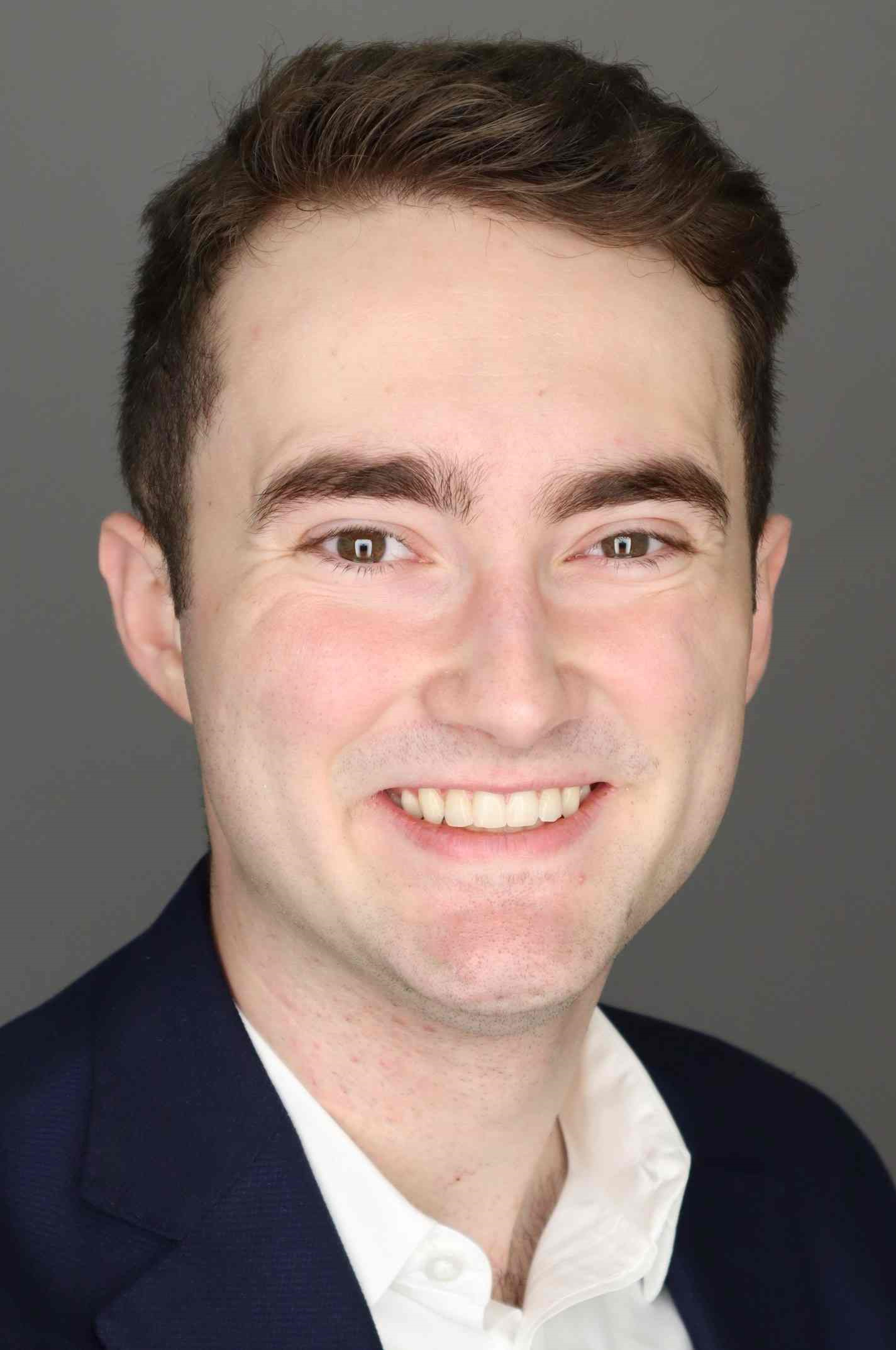
Mentor: Sharlene Day
|
My name is Patrick Moore, and I am a senior undergraduate student at the University of Alabama in Tuscaloosa. During the summer before my senior year of college, I had the amazing opportunity to conduct research in Dr. Sharlene Day's lab through the Penn AHA fellowship program. In the lab, I was able to conduct my own project that studied two recently identified HSPB7 single nucleotide polymorphisms shown to be risk alleles for patients with hypertrophic cardiomyopathy. Not only this, but I also had the opportunity to collaborate with Dr. Marcus Wagner, a post-doctoral researcher in the Day lab, on his project. Under the guidance of Dr. Day, Dr. Wagner, and the manager of the Day Lab, Jaime Yob, I was able to learn a variety of new experimental assays, such as immunohistochemistry and gene cloning. Along with learning new techniques, this program, and the individuals I interacted with at the Penn CVI, have had a profound impact on my outlook for a career as a physician-scientist and the plans I have for my time in medical school. I would highly recommend this program to any student, regardless of how much previous research experience you possess, interested in pursuing an MD, MD-PhD, or PhD program in the future. |
If you have any questions about the program or submitting an application, please contact Emily Romick, Program Coordinator.
© The Trustees of the University of Pennsylvania | Site best viewed in a supported browser. | Report Accessibility Issues and Get Help | Privacy Policy | Site Design: PMACS Web Team. | Sitemap


